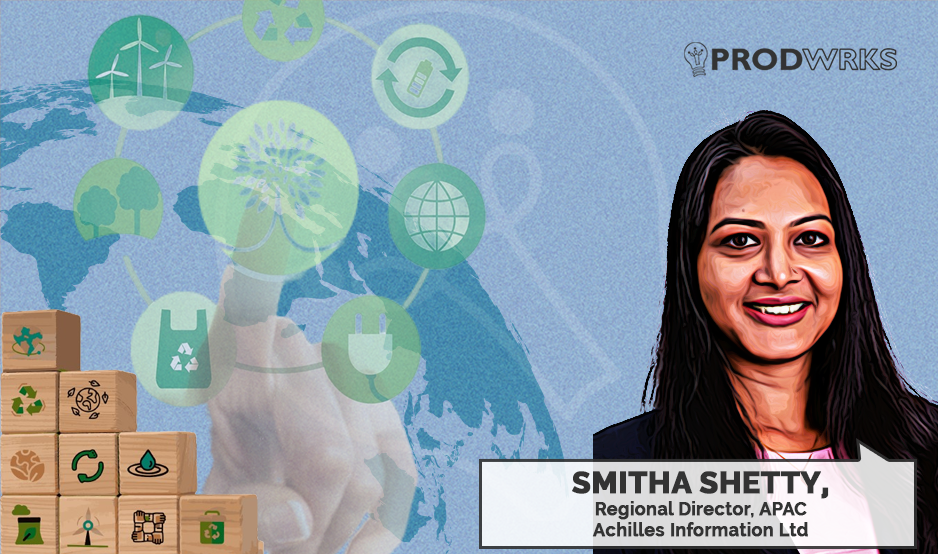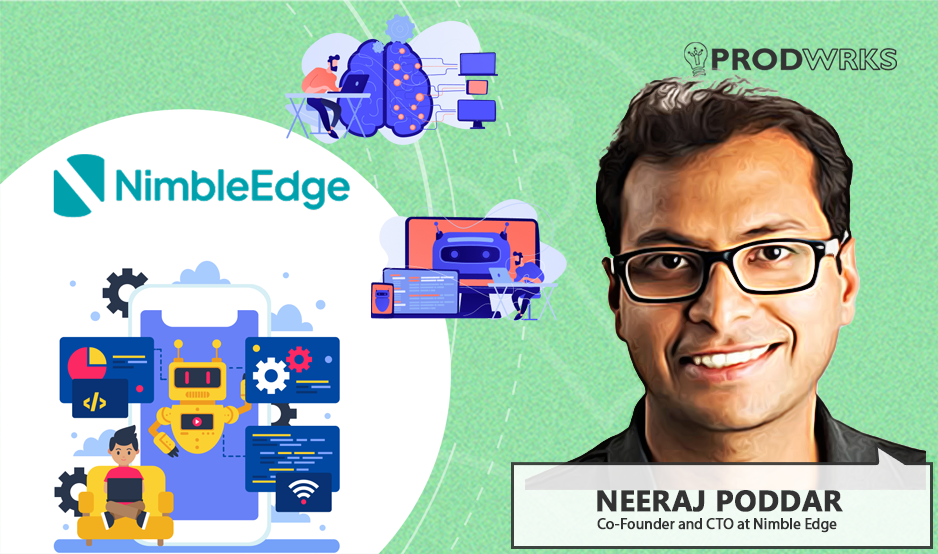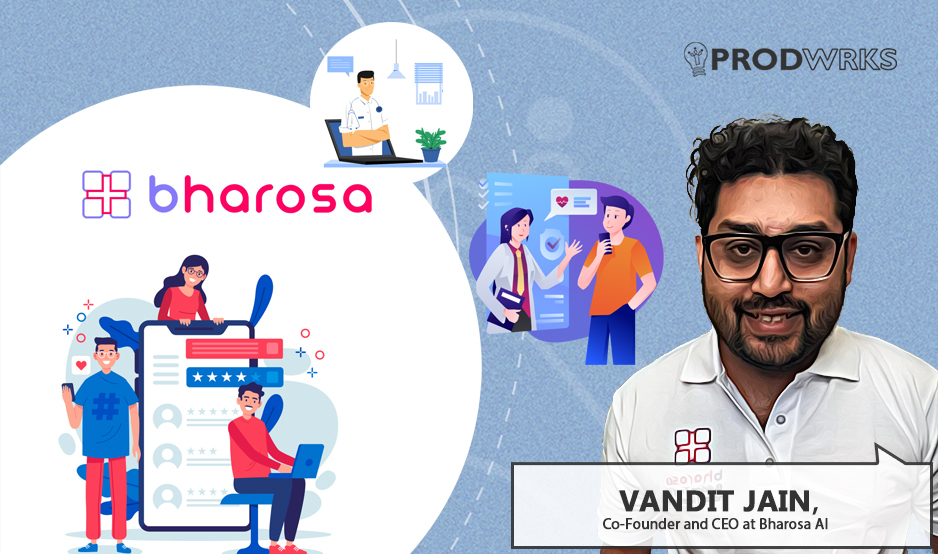
Our industrialized world faces significant challenges, such as climate change, inequality, and balancing economic needs with societal needs. To combat these challenges in a business environment, there has been a global push for environmental, social, and governance (ESG) compliance. Governments, corporations, and investors are consciously embracing sustainable business practices and are more likely to work with companies that adhere to global ESG standards.
Why? Because, without ESG, it is difficult to capture the inherent risks and opportunities of a company’s day-to-day activities, especially the non-financial aspects. However, the journey towards comprehensive ESG adherence is fraught with challenges, by and large, in developing economies like India.
According to Smitha Shetty, Regional Director (APAC) for Achilles Information Ltd., the primary obstacles include a lack of visibility and awareness, supplier dependency and disruption risks, insufficient data transparency, and the complex nature of regulatory compliance.
For over three decades, Achilles has been at the forefront of designing sustainable supply chain processes for businesses using their suite of products and managed services for ESG auditing and due diligence. This includes supplier pre-qualification, risk assessment, and ESG compliance solutions for watchlist screening, adverse media, cyber security, and so on.
In a recent interview with Smitha Shetty, we explored why ESG compliance is paramount to unlocking global investments and enhancing profitability, and how Achilles helps companies navigate regulatory complexities and achieve ambitious ethical and sustainability goals.
Current State of ESG Awareness in India
Smitha Shetty has been a pivotal figure at Achilles. From starting as the company’s first employee in India to leading operations in the Asia-Pacific region today, Smitha has witnessed firsthand the evolution and importance of ESG compliance in the Indian business landscape.
Smitha recalls early instances where business leaders had to be explained and made aware of even the basics of what E, S, and G mean in ESG compliance and why it is important. This lack of awareness can be attributed to the nascent stage of ESG integration in the Indian business ecosystem.
Smitha says, "Businesses simply did not know why sustainability has become a big thing or even how climate change is linked with ESG initiatives. But when our team asked them direct questions like - Do you have a policy that says you don't encourage child labor? Do you have a policy that ensures gender pay parity? - They then say, oh yes, we have this.”
This gap in knowledge often means that companies don’t know what data to collect or how to implement effective ESG practices as a process within their organizations.
Smitha also explains that awareness of ESG varies significantly across companies. While large corporations may have embraced the latest ESG practices, smaller companies, particularly MSMEs, are still catching up and trying to grapple with the complexity of ESG compliance.
"Big brands are ahead of the curve, having already integrated various social and governance practices. However, smaller companies lack visibility and knowledge about the importance of ESG and its impact on their business operations," Smitha explains.
Consequences of ESG Non-Compliance
"Indian companies will have to comply if they want to compete globally due to the strict international legislation of governments that requires them to embrace their local ESG practices," emphasizes Smitha.
Moreover, investors today prioritize companies with strong ESG credentials. Ethically, companies risk damaging their reputation and losing the trust of their stakeholders if they don’t take ESG seriously. For instance, there have been many news reports over the years that have damaged the reputation of big brands that may have unknowingly worked with suppliers that employed child labor.
Managing Cost and Complexity of ESG Compliance
“Somewhere around 65% of Indian companies are MSMEs. So Achilles has been very careful about the kind of solution we provide in the market. We have options available wherein the risk modeling is done based on the maturity level of the organization.”
For less mature companies, Achilles starts with simplified processes and does a lot of handholding by providing checklists. Achilles also offers freemium subscriptions that empower MSMEs to begin their ESG journey, report with confidence to buying organizations, and attract business opportunities.
Smitha explains, "Achilles has been very careful about pricing. We offer solutions based on the level of maturity of the organization and their annual turnover. For MSMEs, it might sometimes cost as little as their monthly pantry expenses."
Addressing Data Transparency & Quality Challenges
She says, "The biggest challenge is the transparency of the data and real-time data availability. For larger organizations dealing with tens of thousands of vendors, the data is often outdated or incomplete, especially when it comes to their smaller tier-two and tier-three suppliers.”
“We operate in a network model where all our customers get access to all the suppliers that we have ever assessed over the years. So it gives them the option of going to an alternative supplier if there is a supply chain disruption. During the pandemic, when the primary suppliers of our clients were unavailable, our pre-qualified supplier database made it easy for them to pick an alternative.”
How Does Achilles Help with ESG Compliance?
Achilles’ approach to ESG compliance involves a five-step model: awareness workshops, data collection and verification, monitoring processes, supply chain development, and analytics. This comprehensive model is supported by their AI-enabled cloud platform, MyAchilles.
1. Workshops and Education
The process begins with workshops designed to educate clients about the requirements of ESG compliance. These workshops introduce clients to their account managers and outline the steps involved in the due diligence process, the documents required, and the process flow.
2. Data Collection and Verification
Achilles’ platform, MyAchilles, facilitates seamless data collection and verification. The platform is interactive, allowing clients to receive real-time feedback on the data they provide. Once the data is collected, it goes through a rigorous verification process to ensure its accuracy and reliability.
3. Monitoring and Continuous Improvement
Achilles’ monitoring process ensures that the collected data remains up-to-date. The platform provides automated reminders for clients to update expiring documents or licenses, and account managers are available to provide additional support as needed.
4. Supply chain development process
Achilles also offers supply chain development services. The platform triggers a scoring system (the Achilles Score). The score is based on four pillars of information: environmental, social, governance, and financial data provided by the clients and suppliers. Based on the score, Achilles’ account executives will work on process implementation to improve compliance and meet goals.
5. Reporting and Analytics
Finally, Achilles provides detailed reports and analytics that give their clients a comprehensive view of their ESG performance. These reports help decision-makers like CEOs, CFOs, and CSOs take informed supply chain decisions and demonstrate their commitment to ESG compliance to stakeholders and investors.
Understanding the Platform: MyAchilles
Achilles’ cloud-based platform, MyAchilles, is a comprehensive tool that facilitates ESG compliance. It includes three main components: MyAchilles, ESG Ratings, and the Pre-Qualified Supplier Network.
MyAchilles
MyAchilles is a centralized AI platform on the cloud where suppliers can register and complete a detailed questionnaire about their company, suppliers, financials, licences, certifications, etc. The platform is interactive, allowing for real-time feedback and highlighting any missing or incorrect information.
ESG Ratings
The platform provides ESG ratings, which are based on the data collected from clients and suppliers. These ratings help companies assess the ESG performance of their suppliers and identify areas for improvement.
Pre-Qualified Supplier Network
One of the key benefits of Achilles’ platform is the Pre-Qualified Supplier Network. This network allows suppliers to complete the ESG questionnaire once and make their data available to all of Achilles’ clients, creating a closed and verified marketplace for the procurement of products and services. This not only reduces the burden on suppliers but also increases their visibility to potential buyers, enhancing their business opportunities.
The Marketplace Model and Matching Process
“As a buying organization, you can make an informed decision without needing to go out into the open market. This interconnected visibility simplifies the procurement process for buying organizations. For the suppliers, it gives them access to a larger customer base.”
“If a company is a supplier to a multinational conglomerate and is listed on the Achilles platform, the vetted information about this company, like their products, services, ESG scores, and certifications, is made visible in real-time to other relevant buyer-side organizations as well. So the supplier does not have to fill in the same information twice while selling to two different buyers.”
How does Achilles generate revenue?
Achilles operates on a subscription-based business model, with both buyers and suppliers contributing to the revenue stream. Buyers typically sign contracts for three to five years, as achieving ESG goals is a long-term process.
Suppliers, on the other hand, pay an annual subscription fee. This model ensures that the data is regularly updated and maintained, providing value to all stakeholders.
Smitha elaborates on the shared revenue aspect, explaining that neither buyers nor suppliers pay multiple times for the same data. This approach encourages more organizations to join the Achilles Network, leveraging existing data to attract new customers.
The Achilles Network provides supply chain pre-qualification across all industries for businesses of all sizes. With one simple questionnaire, you can pre-qualify to work with new buyers regardless of the industry or location they operate in. It is the answer for suppliers who are looking to increase their presence in a highly competitive procurement market and maximise their visibility across a wide variety of industries.
The Long-Term Benefits of ESG Compliance for Startups
For startups, focusing on ESG compliance from the outset can offer significant advantages. Compliance with sustainability standards can enhance a startup’s reputation, attract investment, and open up new market opportunities. Smitha stresses the importance of this early focus, noting that larger companies are increasingly demanding ESG compliance from their suppliers.
Smitha also notes a marked increase in market interest in ESG after the rollout of SEBI’s Business Responsibility and Sustainability Reporting (BRSR) regulations for Indian businesses. Smitha highlights the alignment of BRSR’s nine principles with the United Nations’ 17 Sustainable Development Goals. It underscores India’s global shift towards standardized ESG practices.
Following the SEBI rollout, companies are eager to understand how to implement these new regulations effectively. While some seek insights from international practices, others prefer tailored solutions for the Indian context. “There’s definitely a lot of noise in the market,” she observes, indicating a heightened awareness and willingness to adopt sustainable practices.
Achilles’ strategic integration of AI and human oversight, coupled with a robust marketplace model, positions the company as a leader in supplier management. Their cost-effective subscription-based business model levels the playing field for smaller businesses and startups to comply with global ESG standards.
By continually innovating and raising awareness about ESG compliance, Achilles contributes to a more sustainable and transparent supply chain ecosystem.



